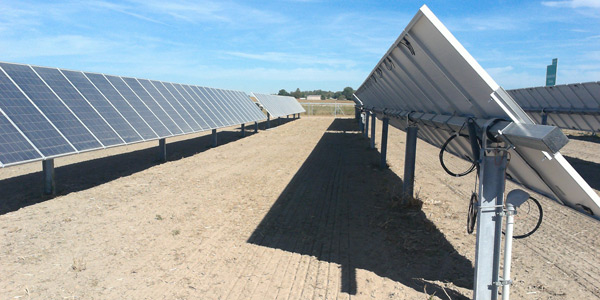By Amanda Durish Cook
The Indiana Senate has approved a controversial bill that would phase out the state’s retail net metering program.
State senators voted 39-9 to approve Senate Bill 309, which gradually lowers the payments residents receive for selling excess energy from their distributed resources back into the grid. The bill now proceeds to the state’s House of Representatives.
Indiana residents currently earn the retail energy rate for their excess electricity, but the bill would reduce that compensation to 25% above the wholesale rate.
The bill originally contained a “buy-all, sell-all” provision that, if passed, meant homeowners would not have been able to use the power generated by their own solar or wind resources. Instead, they would have been required to sell all output to their local utility at wholesale, to be repurchased at retail. That provision was removed from the bill before the full Senate vote.
The bill underwent other amendments, including the addition of a grandfather clause — expiring in 2047 — for existing net metering customers and any residents who have equipment installed before July 1. Residents who sign up for net metering over the next five years would be covered under existing retail rate rules until 2032.
A provision that would altogether eliminate net metering by 2027 was also tossed from the bill.
The proposed law would also allow utilities to discontinue offering net metering in their service areas when net metering generation equals 1% of their peak summer demand load.
In a Feb. 22 opinion in Fort Wayne’s The Journal Gazette, bill author Sen. Brandt Hershman (R) praised the legislation, calling it a “net gain for Hoosiers.” The bill encourages “renewable energy generation while bringing more fairness and market sensibility to the way privately owned solar panels and wind turbines are subsidized by other customers,” he wrote.

Hoosier Energy Power Network Solar Power Plant in Bloomington, In. Inovateus Solar
Hershman said that having electric utilities pay full retail rates for consumer-generated energy is unfair and that the prices are “two to three times the actual value of the energy on the market.” Net metering was established to encourage investments in consumer-owned solar and wind generation when installation costs were higher, he contended, but the generation is now more affordable. He pointed out that the federal government has reduced its incentives for residential renewables.
The bill has found support from Indiana’s major utilities, according to Mark Maassel, president of the Indiana Energy Association, which represents major Indiana electric utilities Duke Energy, American Electric Power’s Indiana Michigan Power, Indianapolis Power and Light, Vectren and Northern Indiana Public Service Co.
“All Indiana’s investor-owned utilities are working together on this,” Maassel said. “The companies are very thankful for Senator Hershman.”
Maassel said the utilities did not have a hand in authoring or revising the bill.
“The bill, where we ended up at, is a positive step and something we would like moved forward,” Maassel said.
But solar and renewable advocates are not happy with the final product, arguing that the bill gives utilities too much control over residential solar and wind.
“Senator Hershman, Indiana’s monopoly utilities and their friends in the legislature who are backing the bill say it was ‘fixed’ with amendments, but that’s not true,” said Wendy Bredhold, an Indiana-based representative of the Sierra Club’s Beyond Coal campaign. “The utilities want to control solar power and take away Hoosiers’ freedom to generate their own.”
Bredhold called the bill a “step backwards” for Indiana and “energy freedom” and said that it “effectively kills homegrown, rooftop solar” in a state “controlled by powerful utility interests.”
The Indiana Distributed Energy Alliance said the bill “will eviscerate net metering and customer-owned solar and small wind in Indiana.”
Sean Gallagher, vice president of state affairs for Solar Energy Industries Association, said the bill’s language fails to account for the full range benefits that residential generation can provide.
“Compensating … local power at average wholesale prices, as SB 309 proposes, significantly undervalues the benefits of producing that power — such as avoiding the need to build new power lines — and ignores the fact that solar power is produced during daytime peak periods when wholesale energy prices are higher,” Gallagher said.
Gallagher has called on Indiana’s legislature to let the Utility Regulatory Commission investigate the costs and benefits of rooftop solar before setting “arbitrary limits or determining compensation that customers would receive in statute.”




